Ready to level up your nursing career? A Master of Science in Nursing (MSN) opens the door to advanced clinical and leadership roles for registered nurses. In the United States, MSN-prepared nurses work as nurse practitioners, educators, administrators, and more – bridging the gap between bedside care and broader healthcare decision-making. According to the U.S. Bureau of Labor Statistics, advanced practice nursing roles are projected to grow by about 40% this decade, reflecting high demand.
This nursing career guide provides an in-depth look at what an MSN career entails, how to get there, and whether it’s the right path for you.
What Is an MSN-Prepared Nurse? (MSN vs. RN)
An MSN-prepared nurse is a registered nurse who has completed a graduate-level nursing degree, providing advanced clinical training, leadership knowledge, and specialization in areas like primary care or administration. In contrast, a standard registered nurse (RN) typically holds an associate or bachelor’s degree and focuses on direct bedside care.
The MSN equips nurses to take on broader responsibilities – independent clinical practice, higher-level decision-making, and roles beyond the bedside. For example, MSN-prepared nurses can become licensed advanced practice providers (like nurse practitioners) who diagnose and treat patients, something RNs without graduate degrees cannot do. They are also qualified for leadership and educational positions; as the American Association of Colleges of Nursing notes, earning an MSN enables nurses to excel in administration, teaching, informatics, and direct patient care. In short, while an RN delivers and coordinates patient care, an MSN-prepared nurse builds on that foundation to influence healthcare on a larger scale – from managing teams to shaping policy.
MSN-prepared nurses serve as independent providers in many cases – diagnosing illnesses, prescribing medications, and managing patient treatment plans. Many also move into leadership positions or academic roles, shaping nursing practice and policy. In 2024, over 349,000 nurses in the U.S. held advanced practice licenses (NPs, nurse midwives, and nurse anesthetists), with employment expected to add roughly 141,000 new positions by 2033.
How to Become an MSN-Prepared Nurse (Step-by-Step)
Becoming an MSN-prepared nurse is a multi-step journey that builds on your nursing education and experience. Below is a step-by-step guide with six key steps, followed by a timeline table outlining the typical time commitment for each stage.
1. Earn a BSN degree
Start with a Bachelor of Science in Nursing (BSN) from an accredited program. A BSN program usually takes 4 years full-time. (If you’re already a licensed RN with an ADN, you can pursue an RN-to-BSN bridge program, often 12–24 months online). This foundational education in clinical nursing is required for entry into most MSN programs.
2. Obtain RN licensure
After graduating, pass the NCLEX-RN exam to become a licensed Registered Nurse. The NCLEX exam costs about $200 in the U.S.. Once you pass, apply for RN licensure with your state board (application fees generally ~$100, plus background check). Now you can practice as an registered nurse and gain essential bedside experience.
3. Gain nursing experience
Work as a professional RN to build clinical skills. Many MSN programs prefer or require 1–2 years of RN experience. During this time, you’ll refine skills like patient assessment, teamwork, and time management. Real-world experience also helps you identify which advanced role or specialty appeals to you (for example, if you love critical care, you might consider an Acute Care NP or CRNA path).
4. Choose an MSN program & specialty
Research accredited MSN programs that fit your career goal – whether it’s a Nurse Practitioner track, Nurse Educator, Clinical Nurse Specialist, Nursing Administration, etc. Consider program format (on-campus or online), duration (full-time ~2 years, part-time ~3+ years), and cost. Ensure you meet prerequisites (BSN degree, minimum GPA, RN license, etc.). Apply to the programs of your choice, submitting transcripts, recommendation letters, and any required test scores.
| Step | Estimated Time |
|---|---|
| Complete BSN program | ~4 years (full-time undergraduate) |
| Pass NCLEX & obtain RN license | ~3–6 months (exam & licensing) |
| Work as an RN (experience) | 1–2 years (common before MSN) |
| Complete MSN program | 1.5–3 years (full-time vs. part-time) |
| Pass certification exam (if APRN) | ~1–3 months (exam prep & scheduling) |
| Obtain APRN license (if applicable) | ~1–2 months (varies by state) |
5. Complete the MSN degree
Once admitted, you’ll undergo graduate-level coursework and clinical training in your specialty. MSN curricula cover advanced clinical knowledge (e.g. pathophysiology, pharmacology, health assessment) and role-specific courses (for instance, education theory for Nurse Educators or management for administrators). You’ll also complete clinical practicum hours under preceptors in your field. Full-time MSN programs typically take around 18–24 months; part-time or RN-to-MSN programs may take longer. Upon graduation, you earn your Master of Science in Nursing degree.
6. Obtain certification and licensure
After earning your MSN, you may need to get certified and licensed in your advanced role. For example, Nurse Practitioners must pass a national certification exam in their specialty (e.g. AANP or ANCC exam, ~$300-$400 fee) and then apply for state Advanced Practice Registered Nurse (APRN) licensure. Nurse anesthetists and nurse midwives have their own certification processes as well. If your MSN was in a non-clinical specialty (like leadership or informatics), you generally won’t need an APRN license, but optional certifications (such as Nurse Executive or Informatics certifications) can boost your resume. Finally, once certified/licensed, you’re ready to practice as an MSN-prepared nurse! Remember to maintain your credentials with any required continuing education and renewals.
Some candidates pursue an accelerated path (e.g., direct-entry MSN programs for non-nursing graduates, or combined RN-to-MSN programs) which can alter the sequence or duration. For instance, an RN with an ADN might do a 3-year RN-to-MSN bridge program instead of separate BSN and MSN degrees. Regardless of path, expect roughly 6–7 years of education and training after high school in order to achieve an MSN (4 years BSN + 2 years MSN, plus experience in between).
Cost of Earning an MSN
Advancing to an MSN involves a significant financial investment. It’s important to consider the various costs: undergraduate tuition, graduate tuition, exam and licensing fees, and ongoing expenses like license renewals and continuing education. Costs can vary widely depending on whether you attend a public or private school and which state you practice in. Below, we provide an overview of key cost components and a snapshot cost table.
Tuition Fees
Earning a BSN and MSN is the largest expense. Public in-state programs are generally more affordable than private schools. According to recent data, a four-year BSN program (tuition, fees, and living expenses) can range from about $90,000 at an in-state public university to over $200,000 at an elite private college. For the MSN, the total cost for a 1–2 year program ranges roughly $30,000 at a public university up to $60,000–$80,000 at a private institution. Many schools offer online MSN programs which may reduce relocation or housing costs, but tuition is often similar to on-campus rates. Be sure to explore financial aid, scholarships, and tuition reimbursement programs (especially if you’re a working RN – some employers help fund advanced degrees).
Exam and licensing fees
Beyond tuition, you’ll pay fees for required exams and licenses. The NCLEX-RN exam costs $200 in the U.S.. Each state charges an RN licensing fee (typically $50–$200 for initial licensure, varying by state). After your MSN, if you pursue an APRN role, the certification exam will be another ~$300 (for example, the ANCC nurse practitioner exam is $295 for ANA members, $395 non-members). State APRN license applications range around $100–$300 in fees, often with additional charges for prescriptive authority or a temporary permit. These are one-time or infrequent costs, but they add up.
Continuing education & renewals
MSN-prepared nurses must maintain their licenses and certifications. RN and APRN licenses are renewed every 1–2 years in most states, usually for a fee (around $60–$150 for RN, and often slightly more for APRN, per renewal). For example, renewing an RN license in Alabama costs about $103 (biennially), while in California it’s about $190.
Many states require completing continuing education (CE) hours for renewal (e.g. 20–30 hours every two years). CE costs can range from free (employer-provided or online webinars) to about $15–$50 per credit hour for paid courses. Additionally, national certifications (like NP board certification) need renewal every 5 years, which might cost a few hundred dollars and/or require proof of CE hours and practice. It’s wise to budget for these ongoing professional expenses so there are no surprises down the road.
Below is a snapshot of typical costs (with ranges for public vs. private and various fees):
| Expense | Estimated Cost (Range) |
|---|---|
| BSN degree (4-year) | Public in-state: $90K total Private: up to $50K+ per year ( ~$150K–$200K total). |
| MSN degree (1–2 year) | Public: ~$28K–$40K total Private: ~$50K–$80K total (tuition, fees, etc.). |
| Exam fees | NCLEX-RN exam: $200. APRN certification exam: ~$300–$400 (e.g., NP exam). |
| Initial licensing | RN license application: ~$100 (state dependent, ~$50–$200 range). APRN license application: ~$150 (range ~$100–$300 by state). |
| License renewal & CE | RN license renewal: ~$100 every 2 years (varies by state). APRN renewal: ~$100–$200 every 2 years (state dependent). Continuing education: many free options; otherwise ~$20–$50 per credit hour (requirement ~20+ hours per renewal cycle). |
Always check current tuition rates and fees for your specific program and state. Don’t forget indirect costs too – textbooks, commuting or online technology fees, clinical travel expenses, and potential lost income if you reduce work hours while in school. On the flip side, many nurses find that the investment pays off with significantly higher earnings and expanded career opportunities after obtaining an MSN.
Role and Responsibilities of MSN-Prepared Nurses
What do MSN-prepared nurses actually do on the job? While specific duties depend on one’s role (e.g. nurse practitioner vs. nurse educator), MSN nurses generally take on greater responsibility for patient outcomes, often serving as clinical leaders. We’ll break down the role into three areas: daily clinical tasks, patient education, and how scope of practice varies by state.
Daily Clinical Tasks
In advanced clinical roles, MSN-prepared nurses perform many of the same tasks as physicians within their scope. For example, a nurse practitioner (NP) with an MSN will assess patients by taking histories and performing physical exams. They order and interpret diagnostic tests (like lab work or X-rays) and use critical thinking to make medical diagnoses. Based on findings, they develop treatment plans – which may include prescribing medications, something RNs without advanced practice authority cannot do.
MSN-prepared nurses often coordinate patient care across specialties, referring patients to specialists when needed and ensuring continuity of care. They are trained to manage patients’ overall health, especially in primary care roles. In hospital settings, MSN nurses (such as Clinical Nurse Specialists or Nurse Anesthetists) perform complex procedures, assist in surgeries or anesthesia, and consult with the healthcare team on difficult cases. In all these tasks, they operate with a higher degree of autonomy and accountability.
For example, an NP might spend a morning diagnosing a diabetic patient and adjusting their medications, then the afternoon conducting a telehealth follow-up, interpreting test results, and coordinating a referral to a cardiologist. In summary, daily clinical work for MSN nurses involves advanced assessment, decision-making, and often acting as a primary care provider – tasks beyond the scope of a typical RN.
Patient Education and Counseling
Patient education is a core part of nursing at every level, but MSN-prepared nurses take it to the next level. Because they often serve as primary or specialty care providers, they have the opportunity (and responsibility) to educate patients in-depth about managing illnesses, preventive care, and healthy lifestyle choices.
For instance, a Family Nurse Practitioner might teach a patient newly diagnosed with hypertension how to monitor blood pressure at home, adjust their diet, and understand their medications. Nurse-midwives educate expectant mothers about prenatal nutrition and birth plans. Clinical nurse specialists might develop educational programs for patients with chronic conditions (like heart failure or diabetes) to reduce readmissions.
In addition, MSN nurses frequently serve as health coaches and counselors – helping patients navigate complex treatment decisions or cope with diagnoses. They utilize strong communication skills to break down medical jargon into plain language, ensuring patients understand their conditions and treatments. As the highest-touch providers in many settings, nurses (including advanced practice nurses) play a key role in improving health literacy and empowering patients. In MSN roles, you’re not just handing a patient a pamphlet – you’re often creating the educational materials, leading community health workshops, or mentoring staff RNs on effective patient teaching. This emphasis on education ultimately leads to better patient compliance, improved outcomes, and a more trusting provider-patient relationship.
Scope of Practice (Varies by State)
One important aspect of an MSN nurse’s role is that their scope of practice – what they are legally allowed to do – can differ depending on state laws. In many states, especially for Nurse Practitioners and Nurse Midwives (collectively APRNs), MSN-prepared nurses have full practice authority. This means they can evaluate patients, diagnose, order tests, initiate and manage treatments (including prescribing medications) without requiring a physician’s supervision. States like Washington, Oregon, and Arizona, for example, grant NPs broad autonomy.
However, other states have restricted or reduced practice regulations, meaning MSN nurses might have to work under a collaborative agreement or supervision of a physician for certain tasks (commonly in states like Texas or Florida). For instance, an NP in a restricted state might need a doctor’s sign-off to prescribe certain medications or to operate an independent clinic. The differences can be significant – in one state an NP can open their own practice, in another they cannot legally do so.
All MSN-prepared nurses (as APRNs) are trained to provide primary and specialized care, but the “rules of the road” depend on where you practice. It’s also worth noting that scope isn’t just about clinical care: some states influence whether MSN nurses can admit patients to hospitals, sign death certificates, or serve as primary care providers for insurance purposes.
The good news is the trend is toward expanding practice authority as the healthcare system leverages nurse practitioners and others to meet care needs (for example, as of 2023, over half of states have granted full practice authority to NPs either immediately or after a mentorship period). Always check your state board of nursing for the latest scope regulations. In any case, MSN-prepared nurses in every state coordinate patient care and provide specialty healthcare services – the difference is just how independently they can carry out those services.
How Much do MSN Earn?
One of the big motivations for pursuing an MSN is the substantial increase in earning potential and strong job outlook. Advanced nursing roles command significantly higher salaries than staff RN positions, and demand for these roles is booming nationwide. In this section, we’ll discuss national salary figures, provide a snapshot of MSN-level salaries in five example states, and highlight the projected job growth for MSN careers.
National salary overview
MSN-prepared nurses, especially those in advanced practice roles, often earn six-figure salaries. For example, nurse practitioners, nurse midwives, and nurse anesthetists (combined) had a median annual wage of about $132,000 in May 2024. This is substantially higher than the median pay for RNs (which is roughly $81K).
In fact, data shows nurse practitioners make on average $34,000 more per year than registered nurses. To put it in perspective, an experienced bedside RN might earn $75–$90K, whereas a nurse practitioner with an MSN can earn $110–$130K or more, depending on specialty and location. Nurse anesthetists (CRNAs) are among the highest paid nurses, often making over $180K. Even MSN graduates in non-APRN roles (like nurse educators or administrators) tend to earn higher salaries than their BSN-prepared counterparts – for instance, a nurse educator (MSN required) might earn around $85K, compared to ~$75K for a staff nurse in many regions.
Of course, salaries vary by role: an NP or Clinical Nurse Specialist will usually out-earn a nursing instructor, and a hospital’s Chief Nursing Officer (typically MSN or DNP-prepared) may earn well into six figures. The bottom line is that an MSN significantly boosts your income potential, helping offset the costs of graduate school over time.
State-by-state salary differences
Earnings for MSN roles can vary widely across the country. Generally, states on the West Coast and in the Northeast tend to pay higher salaries for nurse practitioners and other advanced nurses, often due to higher cost of living and demand. Rural and Southern states may offer lower averages but often have a lower cost of living. Here is a mini-table showing the average annual salary for nurse practitioners in five illustrative states (data from 2024):
| State | Avg. NP Salary |
|---|---|
| California – Highest paying state | $161,540 per year (about $77.66/hr). NPs in California earn top salaries, reflecting the high living costs and full practice authority. |
| New York | $142,830 per year. Major urban centers like NYC drive up wages for NPs, though practice laws are moderately restrictive (physician collaboration needed for some years). |
| Texas | $130,010 per year. A large state with varied demand – salaries around the national average. Texas has reduced practice for NPs (supervision required for prescribing). |
| Florida | $119,710 per year. Many retirees and healthcare needs, but NP pay is somewhat lower and the state currently has a supervisory practice model. |
| Tennessee – Lower end example | $103,720 per year. One of the lower average NP salaries in the nation. Tennessee also restricts NP scope, which can impact how NPs are utilized and paid. |
(Data above are average annual wages for nurse practitioners. Actual salaries within each state can range based on urban vs. rural location, years of experience, and specialty. For instance, an experienced Acute Care NP in Los Angeles may out-earn a new Family NP in a small California town. The table illustrates relative differences: California NPs earn about 55% more than Tennessee NPs on average.)
Job Outlook and Demand
The career outlook for MSN-prepared nurses is exceptionally strong. The U.S. is facing a shortage of primary care providers and an aging patient population, which places nurse practitioners and other advanced nurses in high demand. The Bureau of Labor Statistics projects overall employment of advanced practice registered nurses to grow 40% from 2023 to 2033 – much faster than the average for all occupations. To put that in numbers, roughly 31,900 new openings for NPs, CRNAs, and CNMs are expected each year.
Nurse practitioners alone are often highlighted as one of the fastest-growing occupations in the country. This growth is driven by factors like the emphasis on preventive care, physician shortages in primary care and rural areas, and the cost-effectiveness of using NPs and CNSs to manage chronic diseases. Beyond the clinical roles, MSN graduates in administration and education are also needed: hospitals are seeking nurse leaders adept in quality improvement, and nursing schools need more instructors to educate the next generation (part of the nursing faculty shortage problem).
Job security for MSN nurses is excellent – not only are there many jobs, but these roles are relatively immune to economic downturns (healthcare is always needed). Moreover, MSN-prepared nurses often have flexibility; if direct care roles are saturated in one region, roles in administration, consulting, or telehealth might be options. With an MSN, you have multiple career paths to pivot into. In summary, the employment outlook is very bright: if you earn an MSN, you’ll be entering a field with rising opportunity and a chance to truly shape the future of healthcare.
Popular MSN Specializations and Tracks
One of the great advantages of an MSN is the ability to specialize. Whether you’re passionate about working with a certain patient population or interested in leadership, there’s an MSN track for you. Below, we provide short overviews of several major MSN specializations, followed by a table of subspecialties (particularly for nurse practitioners). Each path requires an MSN but leads to very different careers:
Nurse Practitioner (NP)
Nurse Practitioners are advanced clinicians who provide many of the same services as physicians, often serving as primary or specialty care providers. As an NP, you choose a population focus (such as family, adult-gerontology, pediatrics, etc.) and become the go-to provider for those patients. NPs can examine patients, diagnose illnesses, prescribe medications, and manage overall care. They work in settings from private practices and clinics to hospitals and urgent care centers. This is one of the most popular MSN tracks – nearly 70% of nurse practitioners are family NPs, providing comprehensive care to patients of all ages.
With full practice authority in many states, NPs enjoy a high level of autonomy. Common subspecialties include primary care, acute care, women’s health, neonatal, and psychiatric mental health (see table below for more on NP specialties). Nurse practitioners often develop long-term relationships with patients, emphasizing holistic and preventive care. This field is ideal for nurses who want a direct provider role with more responsibility and the ability to significantly impact individual patient’s health outcomes.
Clinical Nurse Specialist (CNS)
A Clinical Nurse Specialist is an advanced practice nurse who specializes in a specific area of healthcare or a specific patient population, but with a unique twist – CNSs are not only clinicians but also system-level change agents. In practice, a CNS might focus on a niche like oncology, critical care, wound care, or pediatrics. They typically work in hospitals or large health systems. Their role has three spheres of impact: patient care, nursing staff, and organizational improvements.
For example, an oncology CNS will provide expert consultation on complex cancer patient cases (often co-managing care with physicians), lead evidence-based practice projects to improve chemotherapy safety, and educate or mentor bedside nurses on the latest oncology care practices. CNSs often develop protocols and drive quality improvement initiatives – they might analyze data to reduce infection rates or improve patient education materials.
While CNSs do have prescriptive authority in some states, their role is often more consultative than a nurse practitioner’s. Think of the CNS as the “clinical expert” of the nursing team, ensuring that the unit or system is using best practices and that nurses have the skills and knowledge to provide top-notch care. This track is great for those who love problem-solving, teaching, and want to influence practice on a broader scale while still maintaining some patient contact.
Certified Registered Nurse Anesthetist (CRNA)
Nurse Anesthetists (CRNAs) are advanced practice nurses who specialize in anesthesia care – they administer anesthesia and provide related care before, during, and after surgical or obstetric procedures. CRNAs are the highest paid nursing specialty on average and for good reason: they shoulder immense responsibility, keeping patients safe and pain-free during procedures. In many rural hospitals or military settings, CRNAs are the sole anesthesia providers, functioning with full autonomy.
A CRNA’s day might involve seeing pre-op patients to evaluate their health, formulating an anesthesia plan, inducing and monitoring anesthesia in the operating room (from general anesthesia in a major surgery to local anesthesia for a simpler procedure), and managing recovery from anesthesia. They are experts in pharmacology and physiology, capable of making split-second decisions if a patient’s status changes under sedation.
The training for nurse anesthetists is rigorous – increasingly moving to a doctoral level – reflecting the complexity of the role. If you thrive under pressure, have a passion for acute care, and enjoy technical skills (like intubation, epidurals, etc.), CRNA could be a fitting specialization. (Note: as of 2025, new CRNAs are required to earn a doctoral degree in most programs, but those with an MSN in anesthesia are still credentialed to practice. It’s an evolving field academically.)
CRNAs often work in surgical suites, delivery rooms (managing labor epidurals), endoscopy units, or pain management clinics. They collaborate closely with surgeons and anesthesiologists, though in some settings they work independently. This path offers high autonomy, a high adrenaline environment, and the reward of mastering advanced skills – plus, as mentioned, top-tier compensation for your expertise.
Certified Nurse-Midwife (CNM)
Nurse-Midwives specialize in women’s health and maternity care, providing a holistic approach to pregnancy, childbirth, and postpartum, as well as routine gynecological services. A CNM is there to support women through some of life’s most profound moments – they deliver babies, but also much more.
In practice, CNMs conduct prenatal visits, order and interpret ultrasounds and lab tests, educate expecting parents on prenatal nutrition and birth plans, and manage low-risk pregnancies from conception through delivery. During labor and delivery, a nurse-midwife might catch the baby in a hospital or birth center (and sometimes home births), ensuring both mother and newborn are safe and healthy.
CNMs can perform standard obstetric procedures like episiotomies or repairing tears, and they are trained to handle emergencies until an obstetrician can intervene if needed. Beyond birth, nurse-midwives provide postpartum care, assist with breastfeeding, and perform well-woman exams, family planning, and menopausal care. Many women choose midwife-led care for its personalized, low-intervention philosophy. CNMs often emphasize empowering women through education and shared decision-making. They typically work in hospitals, birth centers, or private practices (sometimes alongside OB/GYN physicians).
In terms of scope, about half the states allow CNMs to practice and prescribe independently; others require a collaborative agreement with a physician. This specialization is ideal for those passionate about women’s health and the miracle of birth, who also appreciate a blend of medical science and the art of supportive care. There are also Certified Midwives (CMs) who are not nurses, but CNMs are the path for nurses via MSN.
Nurse Educator
Nurse Educators are MSN-prepared nurses who primarily work in academic and training settings, preparing the next generation of nurses or providing ongoing education to hospital staff. If you have a love for teaching and mentoring, this could be your calling. Nurse educators work as faculty in nursing schools (community college or university level), clinical instructors in hospitals, or professional development coordinators in healthcare organizations. Their responsibilities include designing curriculum, developing lesson plans, lecturing on nursing concepts, and evaluating student learning.
In a nursing school, a nurse educator might teach courses in pharmacology or community health, run simulation lab exercises, and supervise students during clinical rotations. In a hospital, a staff development nurse educator might orient new nurse hires, run in-service trainings on the latest clinical policies, or help nurses prepare for specialty certification exams. This role requires excellent communication and a deep understanding of nursing practice and theory.
One challenge in academia is that salaries can be lower than clinical roles (often in the $75K–$90K range), but educators report high job satisfaction from shaping new nurses. Additionally, the schedule can be attractive (e.g. more regular hours, academic breaks). The MSN in education programs typically cover educational theory, curriculum development, and evaluation methods, alongside advanced clinical content in one’s area of expertise. With the ongoing nursing faculty shortage, MSN-prepared educators are in demand to fill teaching positions – and they play a crucial part in addressing the nursing workforce crisis by training more nurses. It’s a rewarding track if you find joy in watching others learn and succeed.
Nursing Leadership/Administration
MSN-prepared nurses in leadership or administration step away from the bedside to influence healthcare at the systems and policy level. These roles include Nurse Managers, Nursing Directors, Chief Nursing Officers (CNOs), and a variety of other management positions in healthcare organizations. The focus here is on operational oversight, quality improvement, and strategic planning to ensure effective patient care delivery. For example, a Nurse Manager with an MSN might run a hospital unit – managing staffing schedules, budgeting, and performance improvement projects, while also mentoring staff and addressing patient or family concerns that get escalated.
At higher levels, an MSN in Nursing Administration might become a Director of Nursing over multiple departments, or even a hospital CNO, shaping policy, spearheading initiatives like Magnet certification, and representing nursing in the executive suite. Coursework for this track often overlaps with healthcare administration – including finance, healthcare law, human resources, and organizational leadership – sometimes leading to a dual MSN/MBA or similar degrees.
Graduates also work in roles like quality improvement coordinator, healthcare risk manager, or informatics leadership. If you have strong organizational skills, enjoy leading teams, and want a voice in high-level decisions, this path could be fulfilling. Keep in mind, while you won’t be providing direct patient care, your work will impact thousands of patients through improved processes and empowered nursing staff.
Leadership roles can be high pressure – you’re responsible for outcomes and often have to make tough decisions – but they are crucial for advancing nursing practice and ensuring patients receive safe, high-quality care. Each day might involve a mix of meetings, data analysis (e.g. tracking falls or infection rates), resolving unit issues, and long-term planning. With experience, MSN nurses in administration often move into executive roles, influencing healthcare beyond their organization (for example, serving on policy boards or leading professional associations).
These are just a few of the major MSN tracks. Other specialized MSN roles include Nursing Informatics (where you optimize healthcare technology and data for better patient care), Public Health Nursing (working on community and population health initiatives), and Clinical Nurse Leader (CNL) (a relatively new role focused on overseeing care coordination at the microsystem level). The beauty of an MSN is that it offers flexibility – you can start in one area and later transition to another by leveraging post-master’s certificates or on-the-job experience.
Particularly within the Nurse Practitioner track, there are numerous subspecialties defined by patient population and care setting. Here’s a quick overview of common NP specialties and what they focus on:
| NP Specialty | Patient Population / Focus Area |
|---|---|
| Family Nurse Practitioner (FNP) | Provides primary care for patients of all ages – from pediatrics to geriatrics. FNPs are trained to manage general health needs across the lifespan, much like a family practice doctor. They often serve as the first point of contact for families, handling everything from well-child checkups to adult chronic disease management. |
| Adult-Gerontology NP (AGNP) | Focuses on adult patients. There are two sub-types: Primary Care AGNP (AG-PCNP) who manage routine and chronic care for adults and older adults, and Acute Care AGNP (AG-ACNP) who work with adults in acute settings like hospitals and ICUs. Adult-gerontology NPs cover adolescent (sometimes) through elderly populations, with an emphasis on conditions of adulthood and aging. |
| Pediatric Nurse Practitioner (PNP) | Specializes in children’s health. Primary Care PNPs provide general care for infants, children, and adolescents (well visits, common illnesses, vaccinations). Acute Care PNPs work with kids who have complex or critical conditions, often in pediatric ICUs or specialty clinics. All PNPs work closely with families to manage developmental milestones and pediatric illnesses. |
| Neonatal Nurse Practitioner (NNP) | Cares for newborn infants up to around 2 years old, particularly those who are premature or have critical health issues. NNPs typically work in Neonatal Intensive Care Units (NICUs), managing ventilators, feeding issues, and developmental needs of fragile infants. They collaborate with neonatologists and are skilled in procedures like intubation and line placements on tiny patients. |
| Psychiatric-Mental Health NP (PMHNP) | Provides mental health services to individuals across the lifespan. PMHNPs assess, diagnose, and treat psychiatric disorders – from anxiety and depression to schizophrenia and substance abuse. They can offer psychotherapy (counseling) as well as manage psychiatric medications. PMHNPs work in settings like mental health clinics, hospitals, private practice, and even telemedicine. With growing awareness of mental health needs, this specialty is in high demand. |
| Women’s Health NP (WHNP) | Focuses on women’s health across the lifespan. WHNPs provide gynecologic care (annual exams, Pap smears, contraception), reproductive and sexual health services, prenatal and postpartum care (though not deliveries, which are handled by CNMs), and menopause management. They often work in OB/GYN clinics, women’s health centers, or family planning clinics. This role emphasizes a holistic approach to female reproductive health and patient education on issues like pregnancy planning and hormone therapy. |
There are additional NP specialties such as Emergency Nurse Practitioners (who work in ERs managing urgent and emergent cases) and subspecialties like cardiology, oncology, or dermatology that NPs can enter via experience or fellowships. Outside of NPs, MSN graduates can also sub-specialize (e.g., a Nurse Educator might specialize in simulation training, a CNS might specialize in palliative care, etc.). The table above highlights the primary population-based NP certifications.
Choosing a specialization often comes down to your interests and career goals. It’s perfectly okay to be undecided when you start an MSN – many programs will let you explore before committing, and some specializations (like CNL or Nursing Education) don’t require a narrow population focus. Keep in mind that some advanced roles (CRNA, CNM) have separate programs that you must decide on from the start. Research each path, talk to people in those roles, and consider where you see yourself thriving. The good news is that an MSN offers a spectrum of opportunities, and nurses often find their niche with a combination of planning and real-world exposure.
Key Skills and Qualities for Success as an MSN Nurse
Earning the MSN is just the beginning – thriving in an advanced nursing role requires a mix of clinical expertise, soft skills, and personal qualities. Below are some key skills and traits that help MSN-prepared nurses excel. Each of these is presented as a short section (with an H4 heading), but keep in mind many of these qualities overlap and together make you a well-rounded advanced practice nurse.
Advanced Clinical Knowledge & Critical Thinking
At the MSN level, you’ll be expected to have expert clinical knowledge in your specialty and sharp critical thinking skills. This means not only understanding complex pathophysiology and treatments, but also being able to synthesize information quickly to make sound decisions. For example, an NP interpreting lab results needs to integrate data with a patient’s symptoms and history to arrive at the right diagnosis – often thinking through multiple possibilities (differential diagnoses) in a systematic way.
MSN nurses should be comfortable with ambiguity and capable of using evidence-based reasoning. Continually updating your clinical knowledge through reading journals and attending advanced CE is part of the job. In short, clinical acumen – knowing the science and applying it to solve patient problems – is a fundamental skill that builds trust with colleagues and yields better patient outcomes.
Leadership and Decision-Making
MSN-prepared nurses frequently find themselves in leadership positions, whether formally (like a nurse manager or team lead) or informally as the go-to clinical expert on the unit. Strong leadership skills are essential. This includes the ability to make decisions confidently, often with incomplete information, and to take responsibility for those decisions. It also means being able to mentor and guide others – for instance, coaching a staff RN through a new procedure or leading a quality improvement project.
Good leaders are also good collaborators: you’ll coordinate with physicians, pharmacists, administrators, and of course lead nursing colleagues. Skills like conflict resolution, time management, and delegation become important. An MSN nurse might lead an interdisciplinary meeting about a complex patient discharge plan, ensuring everyone’s perspective is heard and an action plan is decided. Even if you’re not in management, patients and families will look to you as a leader in their care. Cultivating a proactive, accountable mindset and confidence in your voice will help you advocate effectively and inspire trust in those around you.
Communication Skills
All nurses need solid communication, but for MSN roles it’s especially critical to be an effective communicator. You’ll be explaining complex medical information to patients in understandable terms (health literacy is key), coordinating care plans with multi-disciplinary teams, and possibly teaching or giving presentations.
Active listening is a big part of communication – whether it’s truly hearing a patient’s concerns (which might reveal an important symptom or barrier to care), or understanding a colleague’s input during a consultation.
Written communication is also significant: as an advanced nurse, you might be writing protocols, documentation that other providers rely on, or even publishing articles. Ensure your chart notes are clear and thorough – in some roles your notes might effectively serve as “orders” or referrals that others follow. Good communication also ties into patient satisfaction; patients want to feel informed and involved in their care. Techniques like motivational interviewing can be useful for behavior change conversations (common in primary care).
And remember, teamwork in healthcare hinges on communication – being approachable, respectful, and articulate will help you collaborate and prevent errors. If you ever find yourself using medical jargon out of habit, practice simplifying your language. The ability to adjust your communication style for different audiences (patients, families, physicians, executives, students) is a hallmark of an effective MSN-prepared nurse.
Empathy and Patient Advocacy
Even as you climb the ladder to advanced practice, the heart of nursing remains caring for patients. Empathy – the ability to understand and share the feelings of another – is crucial in building rapport and trust. MSN nurses often deal with more complex or sensitive scenarios (delivering a serious diagnosis as an NP, or addressing system issues like a patient complaint as a manager). Demonstrating compassion and empathy shows patients and staff that you genuinely care, not just about the medical problem but about them as people. This quality fuels patient advocacy.
In advanced roles, you may be in an even stronger position to advocate – whether it’s arguing for a needed service for your patient, lobbying for a policy change that benefits patients (like better staffing ratios or access to care), or designing interventions that address health disparities.
Patients will often look to their advanced practice nurse as a champion for their needs. For example, a PMHNP might advocate for a patient’s access to therapy sessions in addition to medication, knowing the holistic benefit.
A nurse administrator might advocate for budget to implement a new fall-prevention program for patient safety. Keeping empathy at the core prevents burnout too – it reconnects you with the purpose of your work. Balancing empathy with professional boundaries is important (you can’t “take home” everyone’s struggles), but a successful MSN nurse can put themselves in the patient’s shoes to ensure care is truly patient-centered.
Adaptability and Lifelong Learning
Healthcare is constantly evolving – new research, technologies, medications, and guidelines emerge all the time. As an MSN-prepared nurse, you must be adaptable and committed to lifelong learning. In practice, adaptability means being open to change and able to adjust on the fly. Perhaps a new electronic health record system is implemented in your hospital – you may even lead the training for your unit. Or a pandemic (like COVID-19) upends normal operations, requiring you to learn telehealth skills and manage rapidly changing protocols.
MSN nurses often are the ones to pilot new initiatives, so a flexible, positive attitude towards change is important. Lifelong learning goes hand in hand – your advanced degree isn’t the end of your education. You’ll maintain certifications through continuing education, but beyond that, intellectual curiosity will serve you well. Read research articles in your field regularly (maybe set up email alerts for journals), attend conferences or webinars, and seek out opportunities for further professional development.
Some MSN nurses go on to pursue a doctorate (DNP or PhD) to deepen their expertise. But even informally, staying up-to-date on best practices ensures you provide cutting-edge care. It also models professionalism for colleagues. If you don’t know an answer, an advanced nurse should know how to find it – and be humble enough to say “Let me look into that.” In sum, being a lifelong learner and staying adaptable in the face of new challenges will keep your practice relevant and effective over the decades of your career.
Other important qualities could include ethical integrity, detail-orientation (especially for roles like anesthesia or informatics), and resilience. Advanced nursing roles can be high-pressure, so developing healthy coping mechanisms and support systems is also key. The combination of all these skills and qualities is what will truly empower you as an MSN-prepared nurse to make a difference.
Professional Organizations for MSN Nurses
Joining professional organizations is a great way for MSN-prepared nurses to network, continue learning, and stay active in shaping their field. There are numerous associations catering to different specialties and interests. Below, we highlight some key organizations relevant to MSN-level nurses, along with their mission, reach, and member benefits:
| Organization | Mission (Purpose) | Member Benefits |
|---|---|---|
| American Nurses Association (ANA) | Advances the nursing profession by setting high standards of practice, promoting safe and ethical work environments, and advocating on health issues affecting nurses and the public. | Advocacy on national healthcare policy, setting of ethics and practice standards, free or discounted CE courses and publications (e.g. American Nurse Journal), networking through state chapters, and member discounts on certification exams and insurance. |
| American Association of Nurse Practitioners (AANP) | Empowers NPs to advance high-quality, accessible healthcare through practice, education, advocacy, research, and leadership. AANP advocates at the federal and state level for full NP practice authority and improved patient care. | Legislative advocacy for NP scope of practice, extensive continuing education library and free CE for members, annual NP conference, networking via state chapters and specialty practice groups, access to research and clinical resources, and discounts on NP certification and insurance. |
| National League for Nursing (NLN) | Promotes excellence in nursing education to build a strong and diverse nursing workforce. The NLN is the premier voice for nurse faculty and educators, focused on faculty development and nursing education research. | Professional development for educators: teaching resources, faculty development programs, networking opportunities through conferences and online communities, nursing education research grants, and leadership in setting academic standards. Members also get access to testing services (for student exams), the Nursing Education Perspectives journal, and a career center for academic nursing positions. |
| American Organization for Nursing Leadership (AONL) | Transforms healthcare through expert and influential nursing leadership. AONL’s mission is to shape innovative nurse leaders who drive improvement in health outcomes. It provides education and a collective voice for nurse executives and managers. | Leadership education and certification (e.g. programs for new managers, executive fellowships), an annual conference drawing thousands of nursing leaders, mentorship opportunities, and advocacy on policy issues affecting nursing administration. AONL also fosters a networking community to share best practices in management, and members receive publications like AONL Voice. In short, it’s the go-to for career development for nurse managers and executives. |
| American Association of Nurse Anesthesiology (AANA) | Advances, supports, and protects nurse anesthesiology. AANA’s mission is to ensure CRNAs can practice to full extent and patients have access to safe, high-quality anesthesia care. (Note: formerly American Association of Nurse Anesthetists, now using “nurse anesthesiology” to reflect scope.) | Strong advocacy on reimbursement and scope for CRNAs (lobbying for full practice authority, reimbursement parity with anesthesiologists, etc.), practice standards and guidelines for anesthesia safety, numerous continuing education offerings (including online classes and an annual meeting), research grants and scholarships through the AANA Foundation, and a vibrant member community. Members get the AANA Journal, liability insurance discounts, and access to job listings. AANA essentially provides CRNAs a professional home and voice at the policy table. |
Why join? Professional organizations can enhance your MSN career by keeping you updated on evidence-based practices, offering leadership opportunities (such as committees or conferences), and amplifying your voice on issues you care about. See also: Professional Nursing Organizations Explained: Should You Join Nursing Associations?
Many MSN nurses join both a general organization (like ANA) and one specific to their specialty (like AANP or AANA), as well as state-level associations. The cost of membership is usually outweighed by benefits like free CE courses or discounted conference rates. Plus, being an active member (writing for a newsletter, presenting a poster, volunteering on a task force) can build your résumé and professional credibility. In a rapidly evolving field like healthcare, staying connected through associations is one way to continually learn and give back to the profession.
Weighing the MSN Decision
In summary, pursuing a Master of Science in Nursing can unlock tremendous opportunities – from providing comprehensive patient care as an advanced practice nurse, to leading changes that improve healthcare for entire communities. The MSN journey equips you with deeper knowledge, specialized skills, and a seat at the table where nursing decisions are made. It’s a pathway to higher earnings, greater autonomy, and roles that truly challenge and inspire you. On the flip side, it comes with challenges: significant time and money invested, hard work, and assuming heavier responsibilities once you graduate. It’s important to reflect on your career passion, life situation, and willingness to embrace both the benefits and the trade-offs. Many MSN-prepared nurses will tell you that despite the student loan bills or late-night study sessions, they value the advanced role they now play – whether it’s diagnosing a patient, influencing policy, or educating new nurses, the impact is profound.
As you stand at this crossroads in your nursing career, ask yourself: Where do I see myself in five or ten years? If you crave more from your nursing career – more knowledge, more autonomy, more ability to effect change – the MSN could be your launching pad. Ultimately, the decision to advance your education is a personal one that should align with your professional goals and personal commitments. You’ve read about the roles, the steps, the costs, and the rewards. Now, only you can answer the final question: Is the MSN path the right choice for you, and are you ready to take that leap into advanced nursing practice?
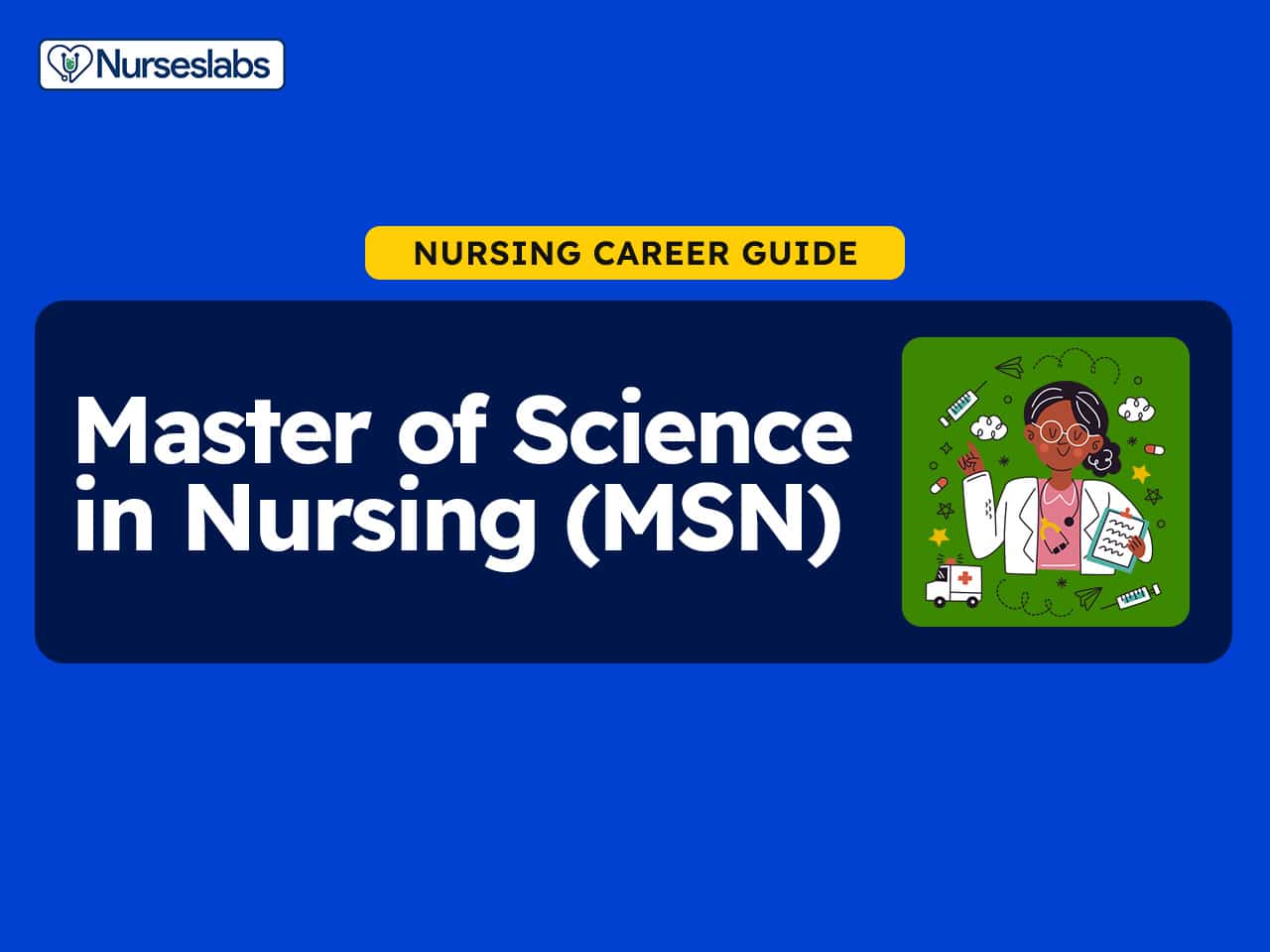
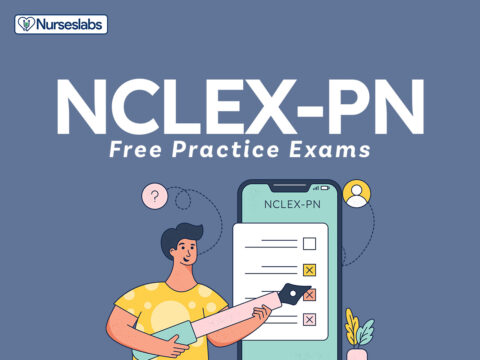

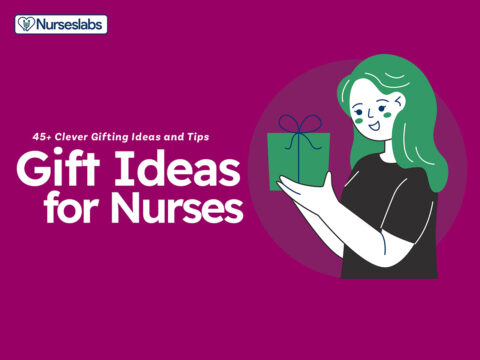
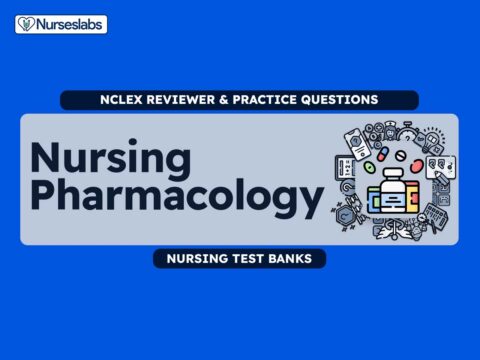
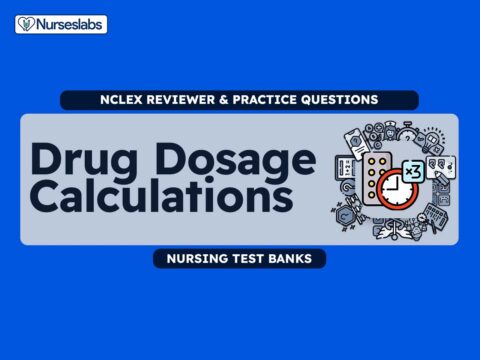
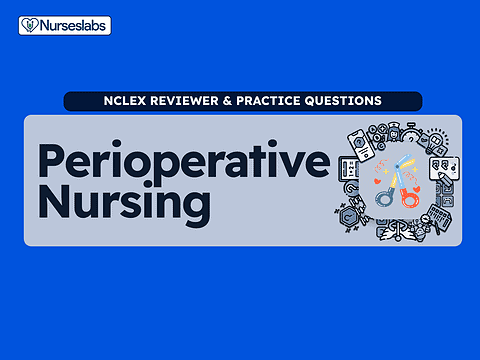
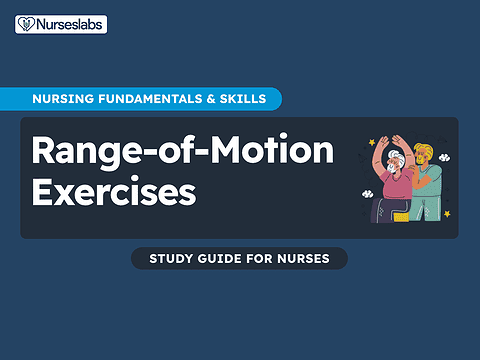
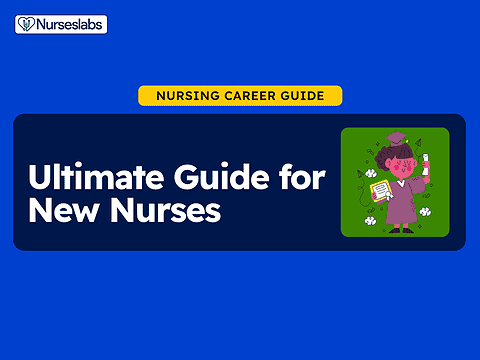
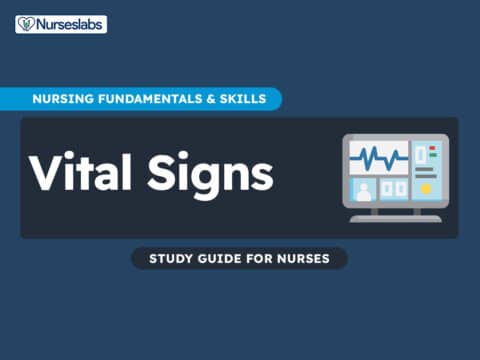
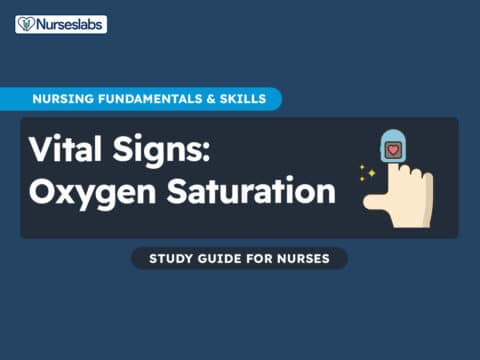
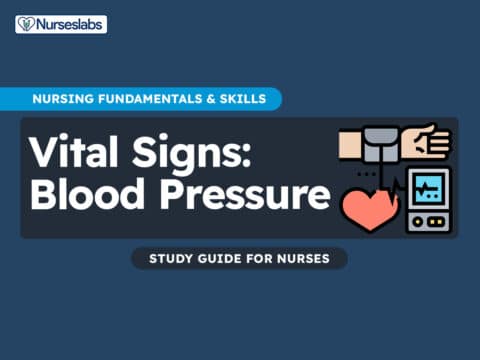
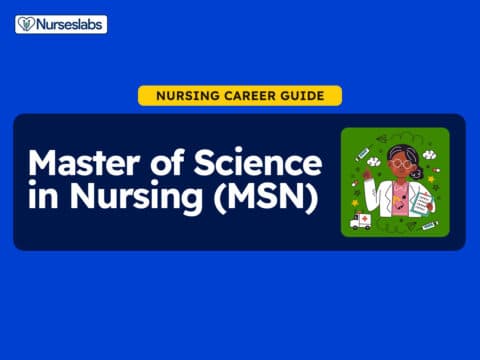
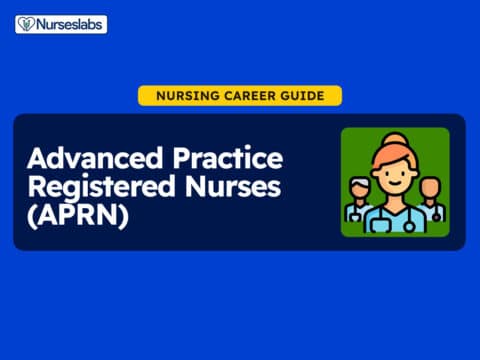
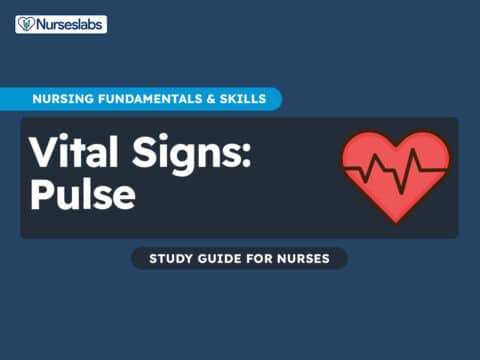
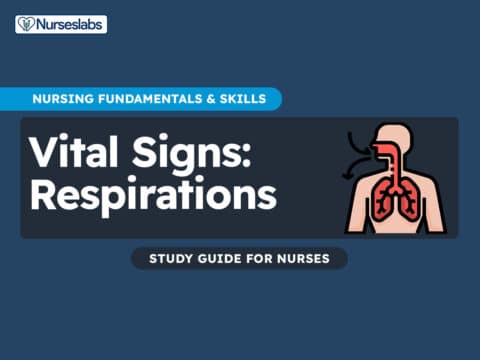
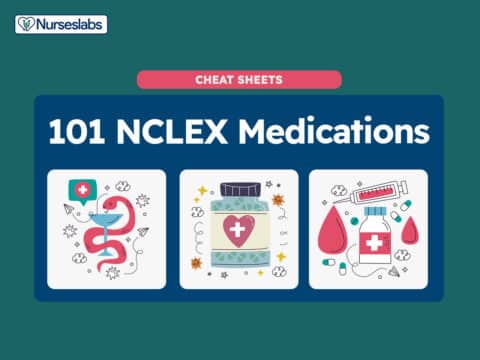
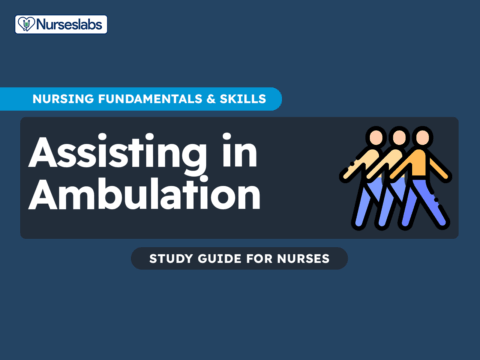
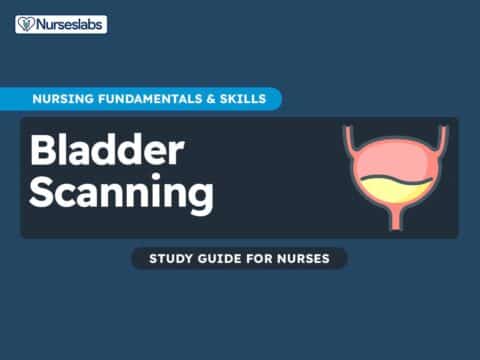
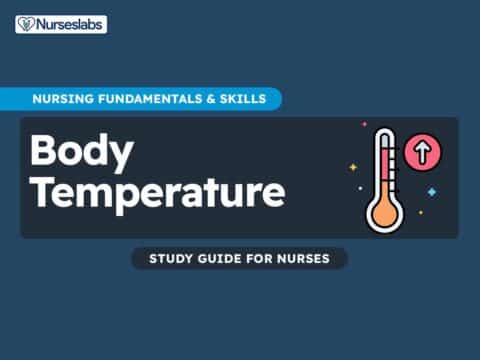


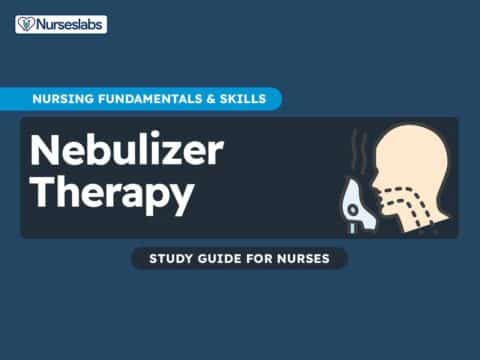



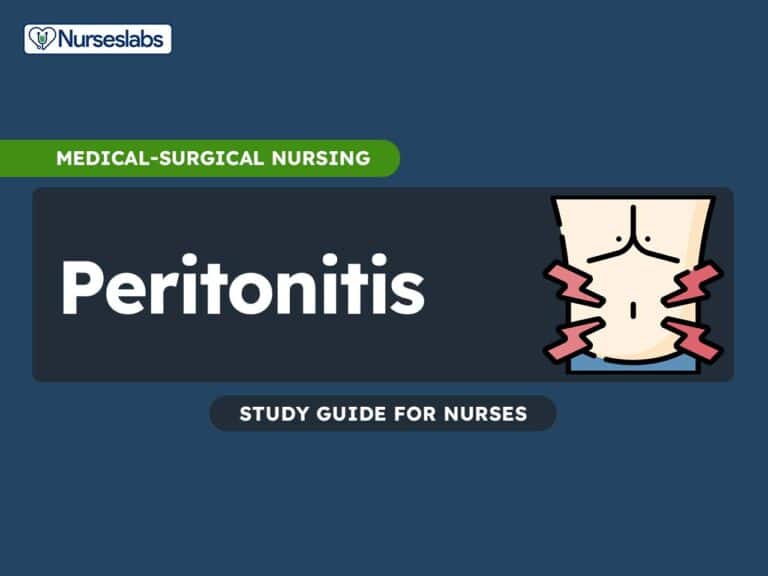
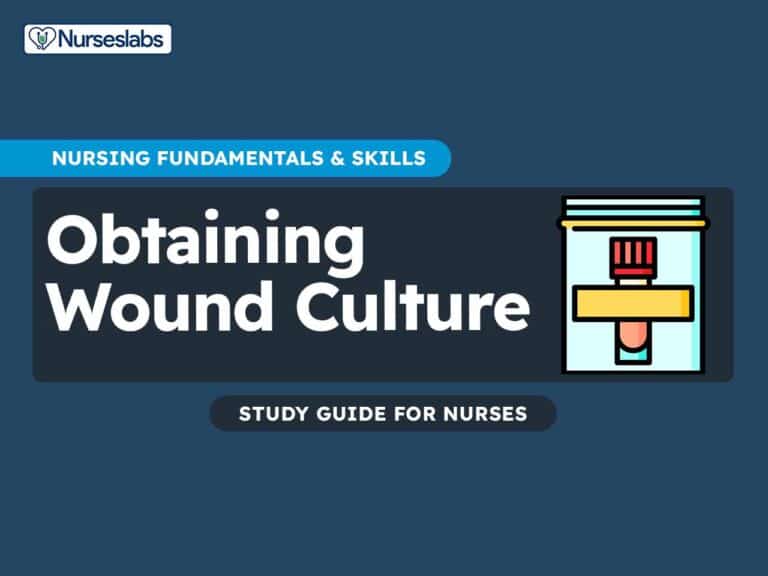




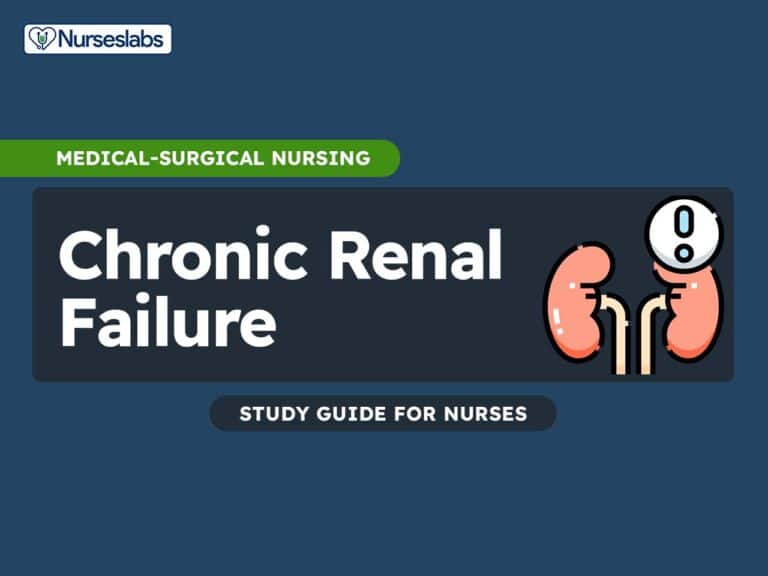

![Lisinopril Nursing Considerations and Patient Teaching [Drug Guide]](https://nurseslabs.com/wp-content/uploads/2023/03/Lisinopril-768x576.jpg)

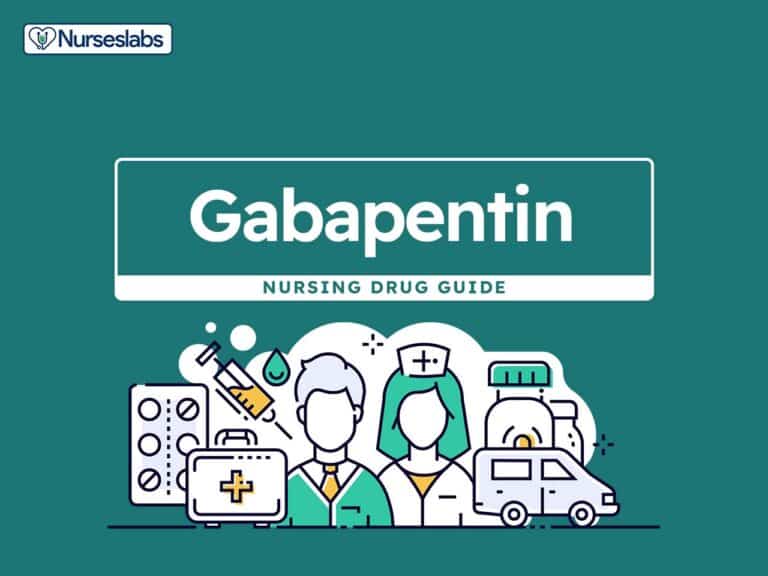
Leave a Comment